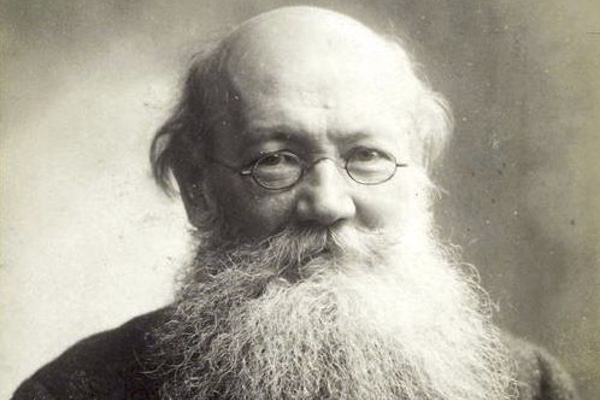The Anarchist Who Stood Up to Lenin and the Bolshevik Coup of October 1917

Peter Kropotkin was a unique and symbolic figure in Russian history at the turn of the nineteenth and twentieth centuries. He had great respect among the backers of the Russian Revolution, especially of the anarchists. They sometimes called him "the grandfather of the Russian Revolution." And for Bolsheviks it was very important to show that Kropotkin supported the regime, even if it was in an indirect way. This world-famous anarchist was one of the trump cards in the hands of Lenin, who cynically tried to use the name of the great anarchist for his own purposes.
However, Peter Kropotkin did not accept the October overturn of 1917 in Russia, believing that any dictatorship, including the dictatorship of one Party, was unwarranted, putting Russia on “the wrong road,” as his daughter recalled. When he heard the first Bolsheviks had fired shots against the defenders of the Provisional Government, he exclaimed: "They are burying the Russian revolution!”
Background
The Russian Empire collapsed in 1917 after the abdication of Tsar Nicholas II. As a result of the victory of the February Revolution of 1917 in Russia a Provisional Government was formed, whose main task was to prepare the country for the election of a new political system and form of government based on western standards of democracy and the constitutional rights and freedom of citizens.
Several generations of revolutionaries (including anarchists) fought for it. They hoped that now in Russia change would bring a better life. Among the supporters of change were émigrés such as Peter Kropotkin. He came back after the February Revolution following long years of exile abroad.
The last thirty years he lived in England, where he was known not only as a recognized scientist-geographer, but as a world-famous anarchist. He wrote many of his famous works on anarchism there.
In St. Petersburg Kropotkin was warmly welcomed by Alexander Kerensky, the head of the Provisional Government of Russia. And it was no coincidence. As we shall see later, Kropotkin thought that only the February Revolution in Russia was real. But in October 1917 there was a coup, in which came to power the RCP (B) - Russian Communist Party (Bolshevik) led by Vladimir Lenin. This party and its successors ruled for more than 70 years.
Kropotkin thought that "the idea of the Soviets ... for controlling the political and economic life is the greatest idea," but he objected to the idea of party dictatorship. Kropotkin was sure that this method of the management would lead to the development of a monstrous bureaucracy: "It will be a formidable obstacle when the revolution will go to the creation of a society on a new economic basis. This will mean the death sentence for the construction of a new society."
Meanwhile, the dictatorship of the Bolshevik Party, famine, destruction, "Red Terror" brought apathy and frustration. In the early twentieth century Russia had been steadily gaining in economic development and was ready to compete with the leading industrial nations of the world. But from the first steps of Soviet power the country went to ruin. Instead of the expected freedoms (economic, political, and social) came the terrible unfreedom.
Kropotkin sometimes managed to soften the rigidity of the revolutionary authorities by direct appeals to Lenin. For example, in a letter to Lenin on March 4, 1920, he wrote that the degeneration of dictatorship of the proletariat into a dictatorship the Party was one of the reasons for the severe crisis that hit the country. "Even if the Party dictatorship is the best means to strike the capitalist system (in that I highly doubt),” he wrote, it is “definiterly harmful” in creating a “new socialist system.” The bureaucratic nature of the system, he warned, would turn socialism into a curse. "Can it really be true that there is not anyone among you to remind you that such methods represent a return to the worst days of the Middle Ages and the religious wars?”
He was particularly apalled by the policy of taking hostages. “Is it possible that your friends do not understand that this is the same as restoration of torture for prisoners and their families?” he asked.
These methods reminded Kropotkin of the policy of the Committee of Public Safety in the French Revolution. He plainly argued that the state cannot rest on police power. “Which way does it direct Russia? To the most harmful reaction.”
In the final tragic years of his life he realized that the revolution in Russia "has not gone on the path we were preparing… It creates horrors. It ruins the country.” He wrote (and his words were prophetic) that "the destruction of the free initiatives in all economic and political life of the country and even in the expression of thoughts, leads inevitably in a fatal direction if not to the full restoration of the pre-revolutionary Mode, but to the evil and, alas, a deep reaction for decades.”